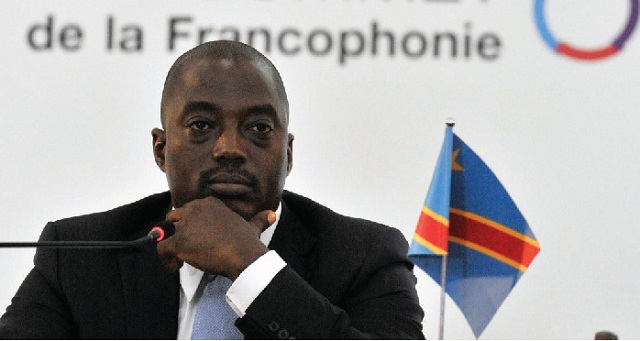
Kinshasa, DR Congo | AFP | The authorities in the Democratic Republic of Congo have banned a protest march planned Sunday against President Joseph Kabila, after two similar rallies were brutally put down last month.
Kinshasa governor Andre Kimbuta told the Catholic organisers in a letter on Saturday that without an agreed route, the city authorities “cannot guarantee proper supervision” of the demonstration.
Kimbuta’s decision came after organisers were invited to a working session to discuss possible routes but the meeting ended without a deal when members of a key opposition group did not turn up.
Fifteen people were killed by security forces on New Year’s Eve and January 21 in peaceful protests that sought to heap pressure on Kabila to step down, according to tolls given by the United Nations and organisers. The government says two people died.
Sunday’s march in Kinshasa was called by the Lay Coordination Committee (CLC), an organisation close to the church, an influential social and spiritual force in the troubled central African country.
Political tension in DR Congo has been mounting since September 2016, when clashes between youths and security forces left dozens of people dead in Kinshasa.
Fears have multiplied that a sprawling, chronically unstable country, which experienced wars from 1996-97 and from 1998-2003, could explode into violence once more, shaking central and southern Africa.
Kabila, who took over from his assassinated father in 2001, is at the helm of a government that critics and grassroots groups say is riven with corruption and incompetence.
He was due to stand down from office in December 2016, ending his second elected term, but he has controversially stayed on under laws enabling him to retain power until his successor is elected.
Under a deal brokered by the church, he agreed that elections would be held by the end of 2017.
But the plan fell through because of what the authorities called “logistical problems” in preparing the vote.
In January, Kabila said he stood by the latest timetable to hold elections — on December 23 this year, two years later than scheduled. But he has refused to state clearly whether he intends to stand again.
 The Independent Uganda: You get the Truth we Pay the Price
The Independent Uganda: You get the Truth we Pay the Price





